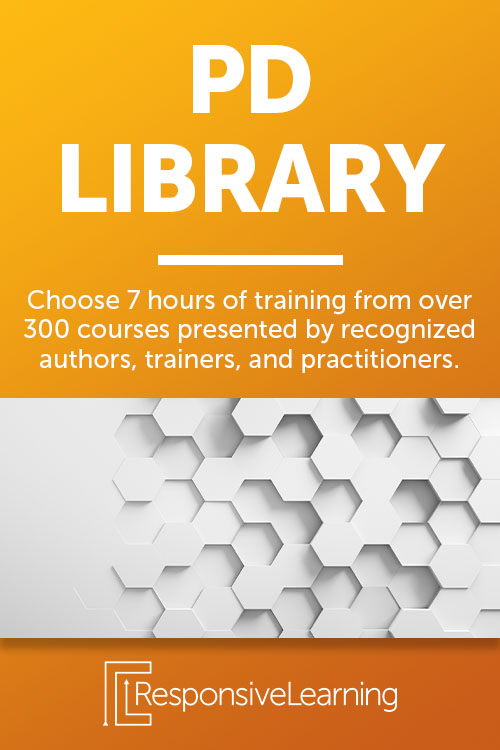As a special education administrator, you are responsible for ensuring that all students with disabilities receive a free and appropriate public education (FAPE). FAPE is a legal requirement for all public schools, and it ensures that students with disabilities have access to the same educational opportunities as their non-disabled peers.
While there are many factors that can impact the delivery of FAPE, personnel issues can be particularly challenging to navigate. Whether it’s a teacher who is struggling to effectively support students with disabilities or a support staff member who is not meeting the needs of their students, personnel issues can have a significant impact on the quality of education that students with disabilities receive.
So, what can you do as a special education administrator to address personnel issues and ensure that your students are receiving the support they need? In this article, we will discuss some strategies for addressing personnel issues and ensuring that FAPE is being delivered effectively to all students with disabilities.
Identifying Personnel Issues
Identifying personnel issues can be an important first step in addressing any problems that may be impacting the delivery of FAPE to students with disabilities. I once walked into a classroom to find a teacher with his hands firmly wrapped around the neck of a third-grade student. Needless to say, it was easy to identify that issue.
There are a few key ways to recognize when personnel issues may be impacting FAPE:
- Keep an eye on student progress.
If you notice that students with disabilities are not making the progress that you would expect, it could be a sign that there are personnel issues at play. This might include things like students not meeting their IEP goals, or struggling to complete assignments or participate in class.
- Pay attention to feedback from teachers and support staff.
If you receive feedback from teachers or support staff about the difficulties they are having in supporting students with disabilities, it could indicate personnel issues. This might include things like difficulties working with certain students, conflicts with colleagues, or other challenges.
- Monitor the learning environment.
If you notice that the learning environment is not conducive to the success of students with disabilities, it could be a sign of personnel issues. This might include a lack of support or resources for students with disabilities or a negative or hostile climate in the classroom.
Once you have identified potential personnel issues, it’s important to gather more information and evidence to support your concerns. This could include things like student progress data, feedback from teachers and support staff, and observations of the learning environment. By gathering this information, you can better understand the nature of the issue and develop a plan for addressing it.
Addressing Personnel Issues
Once you have identified personnel issues that may be impacting the delivery of FAPE to students with disabilities, it’s crucial to take steps to address them. Here are some key steps to take as a special education administrator:
- Review established protocols and procedures.
Before taking any action, make sure you review your district or school’s policies and procedures for addressing personnel issues. This will ensure that you are following the appropriate protocols and procedures and that you are taking a consistent and fair approach to address the issue.
- Determine the appropriate course of action.
Depending on the nature and severity of the issue, there are several options for addressing personnel issues. These might include things like coaching and professional development, administrative intervention, or potential termination. It’s important to consider the severity of the issue, the impact on students, and the potential for improvement when determining the appropriate course of action.
- Communicate with the staff member.
Once you have determined the appropriate course of action, communicate with the staff member about the issue and your plan for addressing it. This might involve things like setting specific goals or expectations, providing feedback and support, or outlining a plan for improvement.
- Monitor progress and follow up.
After addressing the personnel issue, it’s important to continue to monitor progress and follow up as needed. This involves things like regularly reviewing student progress data, checking in with teachers and support staff, or observing the learning environment. By monitoring progress and following up as needed, you can ensure that the issue has been adequately addressed and that FAPE is being delivered effectively to all students with disabilities.
Supporting Students Through the Process
While addressing personnel issues is important, it’s also crucial to ensure that students with disabilities continue to receive FAPE during the process. Here are some strategies for supporting students during this time:
- Provide additional support and accommodations.
Depending on the needs of the students, you may need to provide additional support or accommodations during the process of addressing personnel issues. This might include things like providing additional assistance with assignments or classwork, or making changes to the learning environment to better meet the needs of students with disabilities.
- Communicate with parents and other stakeholders.
It’s important to keep parents and other stakeholders informed about any personnel issues that may be impacting FAPE. This includes explaining the situation, outlining any steps that are being taken to address the issue, and providing updates on progress.
- Keep students informed and involved.
Depending on the age and maturity of the students, it may be appropriate to involve them in the process of addressing personnel issues. You can seek their input on their needs and preferences, or involve them in decisions about their education. By keeping students informed and involved, you can help to ensure that their needs are being met and that they feel supported during this time.
What To Do When It’s a Staffing Issue
These days, there’s no guarantee when you get to school every day how many staff members won’t be there to greet you. When you take the notorious shortages that have historically been an issue in special ed and add in seasonal illnesses, pandemics, and a non-existent substitute pool, it can be more than just ‘a challenge’.
If staffing issues are impacting the delivery of FAPE to students with disabilities, there are a few key steps that special education administrators can take:
- Identify the specific staffing issue.
The first step in addressing staffing issues is to identify the specific problem. This might involve things like analyzing staff attendance records, reviewing prior growth plans, and revamping team guidelines for tardiness and attendance. It may also require you to sit in with your principal to come up with the best way to address the issue.
- Review your staffing needs.
Once you have identified the specific staffing issue, it’s important to review your overall staffing needs to ensure that you have the appropriate resources in place to support students with disabilities. In other words, can you move people around to get the best coverage, meet student needs, and keep your team happy?
This might involve things like adjusting your staffing ratios, requesting to hire additional or replacement support staff, or generally making magic out of your schedule.
- Communicate with staff and stakeholders.
It’s important to keep staff and stakeholders informed about any staffing issues that may be impacting FAPE. This involves things like explaining the situation, outlining any steps that are being taken to address the issue, and providing updates on progress.
- Consider temporary solutions.
If staffing shortages or other issues are causing immediate problems for students with disabilities, it may be necessary to consider temporary solutions in the short term. This might involve things like hiring substitute staff, long-term subs, adding student teachers, adding teachers with temporary or emergency licenses, or requesting classroom volunteers.
Review and Update Your Staffing Plan
Once you have addressed the immediate staffing issue, it’s important to review and update your staffing plan to ensure that you have the appropriate resources in place to support students with disabilities in the long term. This might involve things like adjusting your staffing ratios, seeking out specialized resources or expertise, or implementing strategies to improve staff retention. Remember, a huge factor in teacher retention is training.
As you review your staffing plan, look over your staff training plan. Are you meeting their needs to prevent burnout and retain the teachers you’ve already got? It’s worth the time to look and see how the department plans to train staff and what your staff needs in terms of improvement.
Recap: When Personnel Issues Impact FAPE
Addressing personnel issues is an essential aspect of ensuring that special education programs are delivering FAPE effectively to all students with disabilities. As a special education administrator, it’s your responsibility to take a proactive and strategic approach to address these issues, in order to support the success of students with disabilities and ensure the overall success of the special education program.
This may involve things like providing coaching and professional development, engaging in administrative intervention, or considering potential termination. Pay special attention to the role of staff training in addressing personnel issues, improve retention and overall staff happiness.
By addressing personnel issues proactively and effectively, you can help to ensure that students with disabilities have the support they need to succeed in school and beyond.
About the Author:

Ayo Jones is an experienced special education teacher, successful instructional coach, and charismatic professional speaker. Driven by her love for all things special education, Ayo provides educators teaching students with significant disabilities exactly what they need to survive and thrive.
In her over 15 years in education, she has coached hundreds of teachers, trained thousands of educational professionals, and developed curricula for tens of thousands of students with disabilities. You can learn more about Ayo on her website, Noodle Nook.

